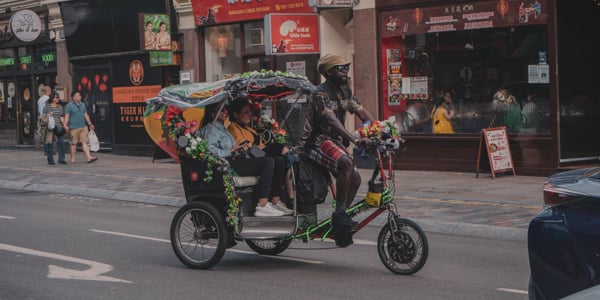Throughout the COVID-19 pandemic, it is fair to say that travel and tourism has been painted as “the bad guy”. Travel has in many cases been the cause of serious spreading events, borders have been quick to close and our attention has been refocused on looking out for our local community. Dramatic images of clear waters in the canals of Venice, and satellite images of the sudden reduction in air traffic, have emphasised the damaging impacts of humans moving and gathering around the globe. Advocates of ‘the new normal’ envisage a future in which tourists stay local, travel slowly and international business meetings take place mainly online.
As we become accustomed to everyday life without travel, it is easy to question why we should go back to traveling at all, or at least to come to the conclusion that the risks outweigh the advantages. But there are plenty of reasons we should keep travelling when it once again becomes safe to do so. Here are just three of them.

Because tourism is people’s livelihoods
Tourism in 2019 was reported to account for 10.3% of global GDP, and 1 in 10 jobs around the world. Since tourism is one of the industries that has been hardest hit by the corona crisis, and the majority of these jobs are held by low-income citizens, it has been argued that our global response to the crisis will lead to hundreds of millions of people being impoverished. For those who rely on tourism’s service jobs to feed their families, the return to our former traveling habits couldn’t come soon enough.
Because tourism can be a force for good
There will never be a form of travel which doesn’t have an impact of some kind. After all, we travel because we seek encounters with people of different cultures, and with wildly different places. These encounters will always have an impact on both parties, and many of these impacts are positive. A good example is the wildlife tourism sector, where there are numerous destinations whose conservation relies heavily on philanthropic donations by tourists - the Galapagos Islands are one example.
Because tourism generates awareness and tolerance
The COVID-19 crisis has been great at emphasising the importance of looking out for each other, especially vulnerable people whom we do not know. But the focus has been very much on our neighbours and our local businesses. This is of course a worthy cause, but we mustn’t forget that there is still dramatic inequality in the world and there are vulnerable people everywhere, many of whom don’t have their own neighbours who can help them.
Being a tourist helps us to understand these harsh realities and gives us the awareness needed to work towards making the world a more peaceful place. It has been argued that the reason we care so much today about the negative impacts of tourism is because we are more aware than ever before – so we should be grateful that we have the capacity to care. Being able to understand and be considerate of other cultures breaks down barriers and fosters peace. For this reason, a world (permanently) without travel is arguably an even scarier prospect than the instability we are living in today.
There is, of course, a lot of work to be done in making the tourism industry itself more equitable and sustainable. These arguments do not intend to deny that. But putting a stop to international travel is not the answer in the long run. What’s important is that we keep traveling in the right way - harnessing the forces for good and working on eradicating the negative impacts. There are ways in which tourism can regrow so that tourists provide increased value for destinations while reducing the adverse impacts.
